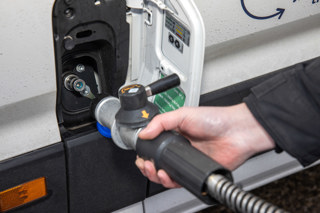By Peter Golding, managing director, FleetCheck
Fleet and HR (human resources) departments need to work closely together. That needs no debate.
They have shared interests and responsibilities in many areas – from how company cars are used to attract employees to how to deal with issues that arise from those same employees mistreating company vehicles.
Yet, anyone who works in fleet will tell you that, all too often, there are poor relationships.
These occur for all the reasons that arise in corporate environments such as lack of time, poor communication and ill-defined responsibilities.
This was crystallised for me recently when we came across an instance where an employee in possession of a company car had been banned from driving.
The employee had informed HR, but that department failed to tell the fleet manager for several months because the view was taken that this constituted confidential information.
Clearly, this is quite an extreme example, but lower level issues of this type arise often.
What is the answer?
Well, a good solution is to construct a framework for collaborating more closely in the future.
Like any good framework it should involve sitting down and working out an agreement that covers all the major areas where the two departments are likely to need to work together.
A standard agenda could look at employee attraction and retention, the driver’s responsibilities to the company, the company’s responsibilities to the driver, plus driver communication.
Much of this should already be covered in your standard fleet policy document but what you may not have done is work out how responsibilities for implementing its measures are handled by fleet and HR.
This is the nub of the matter. Clear lines need to be drawn up covering who should take the lead on issues ranging from how cars are chosen to how employees are disciplined.
Crucially, there should be absolute agreement on how and when information is shared, which we often facilitate through fleet software.
It is all about minimising ambiguity.
In our experience, where this kind of agreement is made, the issues that arise between fleet and HR can be avoided – and the whole operation of company vehicles should improve.


















Login to comment
Comments
No comments have been made yet.